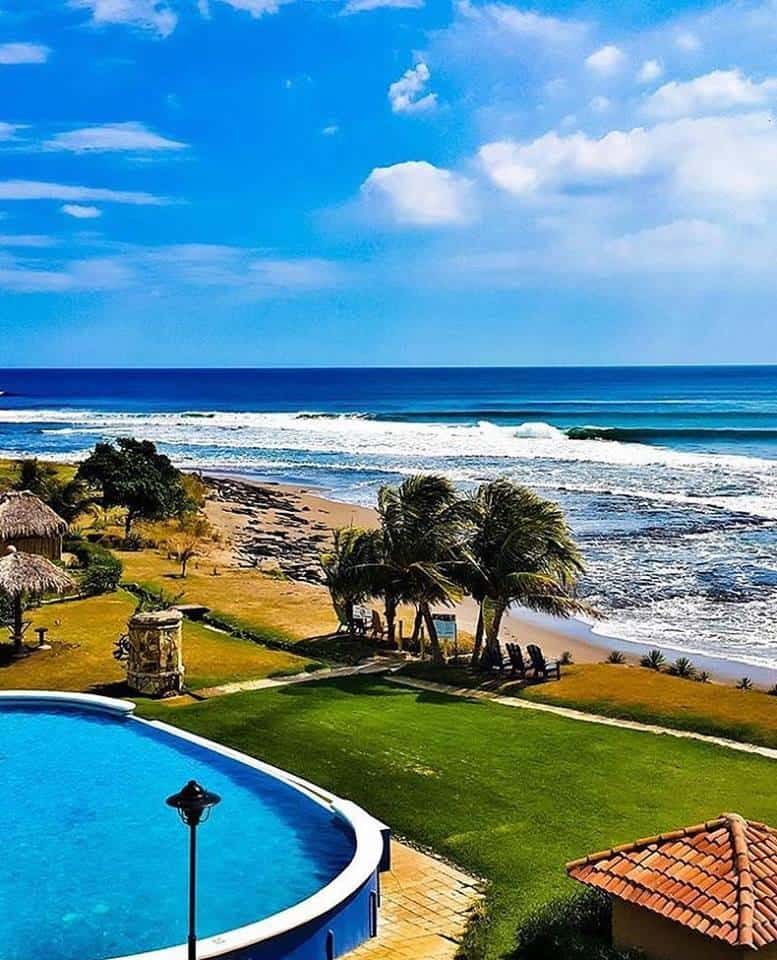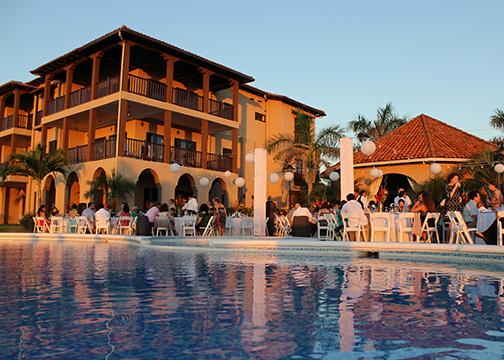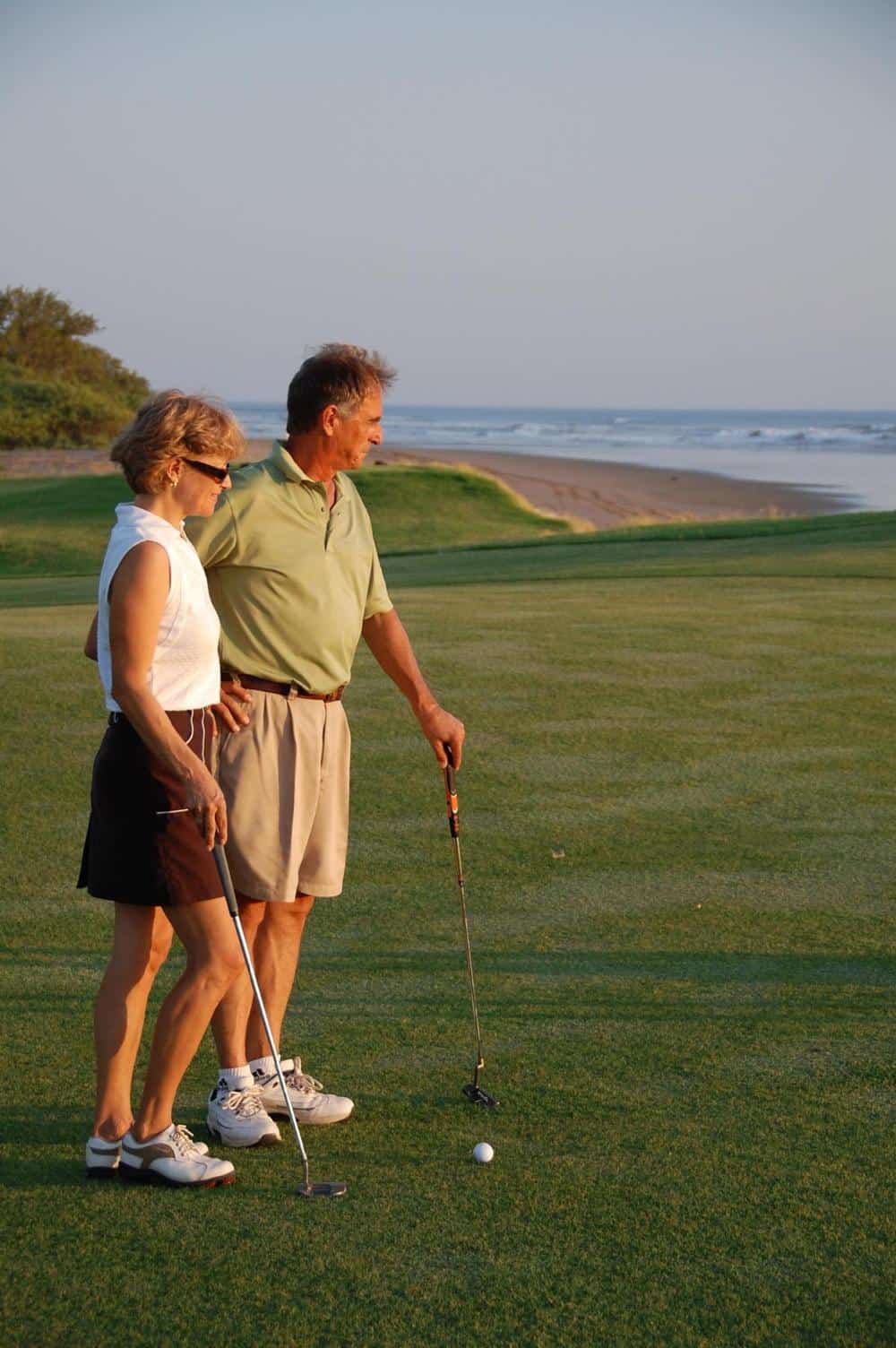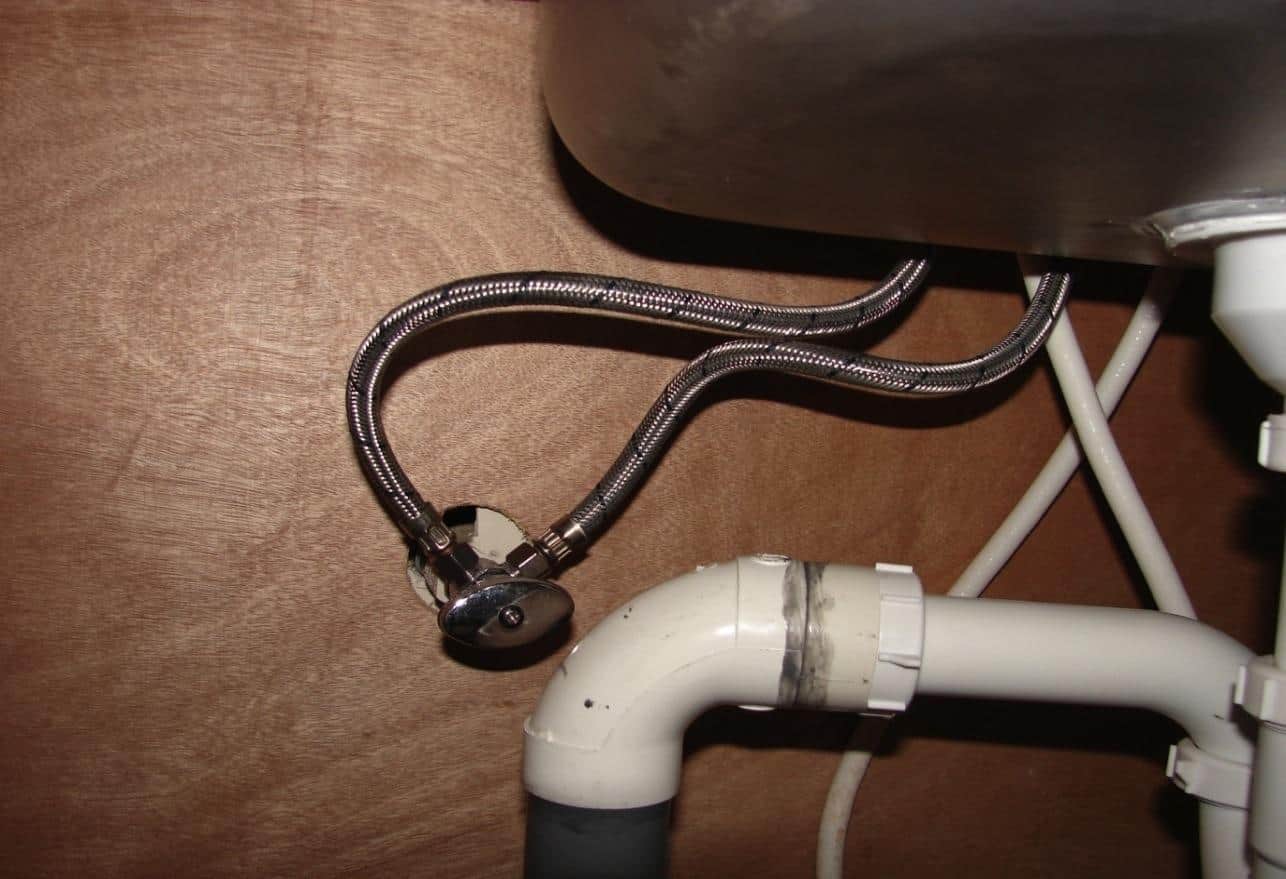This article was published in the Escape Artist Weekly Newsletter on February 28, 2018. If you would like to subscribe to the newsletter, please click here.
This week, you are going to see 3 important questions to ask every time you buy property overseas. Well, actually, one of them isn’t a question as much as something critical to check out if you care about bathing comfort. But nevertheless, read on to see 3 critical issues to know and measure up front.
But first, an important heads up. It also relates to Question #2 in the article below.
Many of you know that I lived in Nicaragua for 14 years and raised a couple girls there. I love the country and know it well. But I do understand that many people view the country with strong reservations, because of past issues that started and finished in the 1980s.
Have things changed since then? Sure. Think the U.S. in 1894, 30 years after our civil war, and you’ll note that this was a time of economic expansion and huge growth. Nicaragua, 30 years on from their civil war, is doing the same and is markedly better off by almost any metric you care to use.
Even a decade ago, the positive news was there if you cared to look. A 2010 World Bank Report stated that Nicaragua was the quickest country in Central America in which to open a business. But the next part is the real shocker.

Wow. You probably didn’t see that coming. “Best protects investors?” Yep. And the word is out.
Movie stars and the rich and famous are gobbling up properties there. Major investors and fortune 500 companies are flocking in. The PR engines are ramping up to full steam to promote the great news for the country.
Let me just say that if you haven’t been there, go now. See it with your own eyes and draw your own conclusions. The “if it bleeds it leads” media hasn’t told you anything about the country in 30 years because, quite simply, it’s a safe, secure, and stable country with one of the lowest crime rates in the Americas. Foreign investment and tourism growth are in double digits for over a decade now. The problem, if there is one, is that Nicaragua just doesn’t bleed, so you have no news to replace the 30-year-old bad news.
The opportunity ship is sailing. And you want to be on it if you care about great deals in a severely undervalued market. Because of a lingering perception problem, the timing to take advantage of incredible bargains because of the misperception gap is right now. The gap is closing and closing quickly. Really. Get down there to see it now before the gap is gone.
One Property Example to Consider Right Now
Experience the Insider community that takes your international lifestyle to the next level. Download your FREE guide
"18 Steps to Implementing Your Plan B" instantly!
Let me toot my own horn here to provide an example of this price-perception gap in Nicaragua. The next generation of Las Perlas oceanfront condos is being offered for $139,000. These are beautiful condominiums, directly on the Pacific Ocean. They are right next to our existing condos, golf course, restaurant, and bar.
 The View from the Condos
The View from the Condos

Existing Las Perlas Condos
The new Las Perlas condos under construction right now also look out over the 2nd best surf break in Nicaragua. It is one of the top ten in Central America and has been featured on the cover of magazines and in professional surf videos for years. Any condo similar in Costa Rica or Panama would be double or more.

The GP Wave Calling all Surfers

Winter Golf in Shorts
Do you think these condos will rent well to surfers? To vacationers? Sun lovers? To people who want to play golf by the ocean in the winter? To value-conscious travelers who don’t want to spend a ton of money to enjoy a tropical vacation right on the Pacific Ocean?
If you said “yes,” you are right. The existing properties at Gran Pacifica do very well. These new one-bedroom condos will rent well, too. They are also a very nice place to enjoy when you want to come visit.
By the way, and this is very important to note. Gran Pacifica is keeping 1/3 of the new Las Perlas condos for its own inventory. We have our money where our mouth is. We believe, in fact, that the rentals will be significant and we want that income for our shareholders. You should care about how many condos a developer keeps. You should care a lot. (See Question #2 below.)
The word is out. The first Las Perlas building of 12 condos sold out in a few months and reservations on the 2nd building are now underway. As we complete the foundations of the first building, we’ll move to begin the 2nd building. If sales are as brisk going forward as they have been to date, we’ll then move to start the 3rd building as well. These condos are the right product, for the right market, at the right time.
Because we are so sure that you will “get the joke” if you visit Nicaragua, come visit and we’ll take the cost of your trip off the sales price, up to $2,500, if you like what you see. You can even fly first class for that. Discovery tours are set up for March 9-11 and April 20-22. See for yourself the real Nicaragua, 30 years on, and step into the gap, the gap of insight, profit, and upside. You’ll be glad that you did.
Now to the main article. Global Property Buyers and Three Critical Concerns to Address. Here are some serious thoughts to consider when buying property overseas. The Consumer Resource Guide we produce has 15 of them, and if you’d like a copy, let us know.
Does the Developer Have a Record of Success?
This is a very important question because both “yes” and “no” require a follow-up question to dig a little deeper. Understanding the track record of your developer, or lack thereof, will give you a better understanding of what to expect in your process of moving to another country.
If the answer is “yes” and the developer has a proven track record, investigate that record. Maybe visit some of their other locations. What do you think about them? Would that location meet your expectations? Ask your developer about the process it took to make their previous communities come to fruition. Pay attention to the answers.
Another measure of track record is simple: What have they done? How much have they invested in amenities to create a sense of community? What is real and what is just promised? A great mantra for overseas property ownership is, “Buy what you see.”

Play Golf with the Kids and Grandkids at Gran Pacifica Today
If your developer has a proven track record of good results in real estate development, that is a great sign. In the development business, people only get better and learn from their mistakes, so if your developer is well seasoned, you can expect good things.
On the other hand, if the answer is “no,” and the developer or builder has no track record, they are probably just starting out in the business. That does not mean you should instantly walk away. Just understand that you are putting not only your money, but your trust as well, behind someone that is starting an entirely new business in a new country – unless they are a local developer. But, still, they are new to development.
Basically, you are agreeing to be one of their guinea pigs as they experiment and suffer through trial and error as they forge their way into the business. They will make mistakes, ones that will affect you, but if you are willing to suffer the consequences (and if you get a price that reflects this), then, by all means, go for it.
What determines the quality of your developer, whether they have a track record or not, is firstly their team, secondly the skills of that team in the business, and thirdly (and most importantly) the commitment to stay the course and deliver. Many, but not all, future developers and contractors move to Latin America for a hobby like surfing, fishing, diving, etc. Or they are easing into retirement and get bored, eventually moving into development as a side business.
If this is the case, you have to ask yourself, “When my electric is being put in, is this guy going to be there overseeing it? Or will he be out surfing because he heard the waves are going to be perfect?” These questions have to do with commitment, and I have listed several not-so-subtle questions to ask to find out your developer’s level of commitment here as well:
- Does the developer live in the country?
- Is the developer’s family in the country?
- Are their kids enrolled in school?
- Does the developer belong to any local clubs or organizations?
- What kind of team have they built?
- How long has that team been together, and what is the combined years of experience for that team?
- Do they have a business plan, and if so, are they following it?
Takeaway: If you ask your developer flat-out, “Are you committed to this project?” the answer will be an obvious “yes.” But if you ask more substantial questions like the ones listed above, you will start to see how truly committed your developer is to their project. The more committed they are, the better your new home will be.
How Many Condos is the Developer Keeping?
Many developers selling condo product sell them based on a projected rental income and return on investment for the buyer. This is fairly common in vacation rental areas, especially since most vacation properties are not going to be used by the owner full time. In fact, in many cases, owner usage is restricted to a few weeks per year.
The question every buyer should always ask a developer who is selling the condos based on a cash flow return is simply this: How many of the condos are you keeping?
Doesn’t it make sense that the developer would want to keep as many as possible to earn a similar yield as the one they are promising you? In fact, they will earn a higher yield since the ROI for the developer is based on the cost to build, without the markup to a retail price that you will pay.
A couple terms to define here. ADR is Average Daily Rate and is the average of all rates charged to a room over the course of a year. Occupancy Percentage is the average occupancy of a room or resort for the entire year. Over the years I’ve seen many variations and wide ROI projections from some condo projects in the Caribbean and Central America. I won’t identify them, but some of these were outrageous. This quote is incredible.
(The return on investment) “… is based on a very conservative nightly rental rate and occupancies north of 80% depending on the season.”
80% occupancy depending on the season. But how about in the offseason? What is the year-round occupancy? That is what matters. 80% year-round is almost unheard of unless you are giving the rooms away in the low season. And then this negatively affects the ADR.
Rental yield is ADR times Occupancy, less costs and fees. Sure, you can push occupancy rates higher, but probably at the expense of ADR and vice versa. Tourism bureaus have the statistics for these numbers by region and type of hotel usually. Double check the assumptions and then use the annual location averages to see what the most likely scenario will be for you and your rental yield.
Greed is your enemy here. Common sense and a little bit of simple math are your friends. Run the numbers and see, if you were in their shoes, how many units you’d want to keep.
At the beginning of this article, I mentioned that Gran Pacifica is keeping 1/3 of the condos in the Las Perlas Oceanfront Village. In Belize, ECI is retaining 60% of our Grand Baymen Oceanside branded residence products. We want the revenues from the rental yields in both Nicaragua and Belize. We believe in the numbers and have serious skin in the game to prove it.

Is the House or Condominium Plumbed for Hot and Cold Water?
This may seem like a silly question, but it is not. Imagine buying a home in the United States or Canada and the realtor says, “Oh, and one last thing, there’s no hot water in this house.” You would probably walk right out and find a new realtor, one that would not waste your time by showing such an uninhabitable home. But now imagine that this exact scenario happens all the time in Latin America.
There are reasons that homes are not plumbed for hot water. First, extra plumbing is expensive. Also, water heaters are expensive. And the electric to run them costs even more. Furthermore, taking a room temperature shower when it is 95 degrees out is not the worst thing in the world. However, if you come from the United States and Canada, you are used to hot showers and hot water in every faucet, so you better do your homework and check beforehand. Otherwise, you will be stuck with cold showers in your new home.
When you are visiting a home or condo, you will come across sinks just like you see in the United States and Canada: a sink with two faucets, one for hot and one for cold. You may be in a mansion with granite counter tops, Italian marble, and expensive fancy Moen faucets, but when you turn on the left faucet, indicating hot water, cold water starts pouring out.
You probably think, “Well, heck, the water heater is probably all the way over in the garage somewhere. Plus the house is empty, so they may have the hot water heater turned off. I’m sure this water will heat up eventually. So, as long as it’s running and the pressure is good, this will be fine.” But that assumption can lead to you buying a home with no hot water.

What’s Going on Here?
This often happens, especially in homes that cost under $200,000. Look under the sink and you’ll see a Y-adapter that splits one single cold-water pipe running to that sink into two pipes, one for each faucet. With the water from two faucets all coming from the same main pipe, that means that sink will only ever produce cold water. You have to look under the sink to know for sure if you have hot water in the bathroom. Check.
What also often happens is that some, but not all, sinks and showers in a home are plumbed for both hot and cold water. Hot water may be in the master bedroom, but in the guest room showers and bathrooms there is only cold water. If you are building a house, your builder might do this on purpose, assuming that is what you want for your house. Also, it very may well be what you want.
One solution to this problem is using instant water heaters for the guest bathrooms, which are an effective way of planning because, in a guest room, you only need hot water when someone is there. If you are taking that strategy, then be sure to take into account the extra electric load that the instant water heater will be using when planning the electricity for your home.
However you go about it, be sure to check every sink, shower, and faucet for hot water before buying a house or condo. Know where there is hot water and where there is no water, and make your decision based on that knowledge.
Last Thoughts
So, there you have 3 critical pieces of information to understand and bring into your analysis of any property acquisition overseas. ECI is a 22-year-old business with a business plan, great team, and skin in the game – building products for folks looking for affordable North American standards. There are other developers out there doing the same. Use these 3 criteria to measure us and our competitors, and the home or condo you decide to own will be the one you want. Stay tuned for more tips and additional questions to consider when buying property overseas in future columns.
Also, if you want to come to Belize for a very special, invitation-only conference called President’s Week, let me know. I have spoken at this event the past 20 years and have a couple invitations I can make available to you. It’s coming up soon, so let me know. April 14-19, 2018.
One of the best features of the event is that it’s small and all meals are included. Speakers and attendees have plenty of time to connect in person and enjoy each other’s company for the week.
The speaker lineup is world class. It includes G. Edward Griffin, whom I shared the stage with a few years ago and then again last week. His seminal work, The Creature from Jekyll Island, is about the creation of the U.S. Federal Reserve and his perspective is unique and profound. Bring your copy and have him personalize it for you.
 Edward and Pat Griffin 2016
Edward and Pat Griffin 2016

Griffin and Cobb Sharing the Stage in Acapulco 2018
Other speakers will cover asset protection strategies, structures, banking, investing globally, metals and tangible hard  assets, real estate, and a special session on the emergence of crypto-currencies and their impact on the market and definition of money in the coming years.
assets, real estate, and a special session on the emergence of crypto-currencies and their impact on the market and definition of money in the coming years.
Unlike large events where speakers slip in, speak, and then depart, President’s Week is different. Limited to 50 attendees and all meals as part of the program, the event is intimate and close up. If you want to have real quality time with experts in their fields, this is an event to attend.
Again, I have a couple invites that I can extend as a speaker. Be in touch if you’d like to attend.
This article was published in the Escape Artist Weekly Newsletter on February 28, 2018. If you would like to subscribe to the newsletter, please click here.
 Michael K. Cobb is the CEO and co-founder of ECI Developments which has properties throughout Latin America. He speaks all over the world on international real estate and is a board member of the National Association of Realtors.
Michael K. Cobb is the CEO and co-founder of ECI Developments which has properties throughout Latin America. He speaks all over the world on international real estate and is a board member of the National Association of Realtors.
Like Our Articles?
Then make sure to check out our Bookstore... we have titles packed full of premium offshore intel. Instant Download - Print off for your private library before the government demands we take these down!







